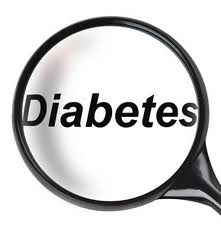Screening for type 2 diabetes does not appear to affect overall population mortality rates, according to a new study published in The Lancet. 
The randomised trial, which is the first ever study evaluating the effect of type 2 diabetes screening programmes on overall mortality rates in a population, assessed the number of deaths over ten years in a group of more than 20 000 patients across 32 general practices in Eastern England. The patients were all aged between 40 and 69 years, and were assessed as being at high risk of diabetes.
Researchers allocated the practices participating in the trial to one of three groups: a group where one round of screening was followed up by routine care for patients diagnosed with diabetes; a group where one round of screening was followed up by intensive management of patients diagnosed with diabetes; and a control group where no screening took place. They then tracked mortality rates in the patients studied over a period of 9.6 years on average (median).
The authors of the study found that overall mortality was not reduced in the groups where screening took place. They also found no significant difference between the screened and non-screened groups in the number of deaths specifically attributable to diabetes, cardiovascular illness, cancer, or other causes of death.
According to Dr Simon Griffin, of the MRC Epidemiology Unit at Addenbrooke’s Hospital in Cambridge, UK, “The high proportion of undiagnosed cases of diabetes, the substantial number of patients with complications at clinical diagnosis, and the long latent phase of the disease are strong arguments for screening. However, in the large UK sample that we studied, screening for type 2 diabetes in patients at increased risk of the disease was not associated with any reduction in mortality within ten years.”*
“It seems that the benefits of screening might be smaller than expected and restricted to individuals with detectable disease.
Michael Engelgau of the Centers for Disease Control and Prevention in Atlanta, Georgia, USA, writes, “Diabetes screening and diagnosis can be done with relative ease, which further escalates popular support for wide-scale screening. However, these compelling arguments overlook the screening costs, potential harms, and lack of clear evidence that screening improves health outcomes compared with current routine clinical diagnosis.”
